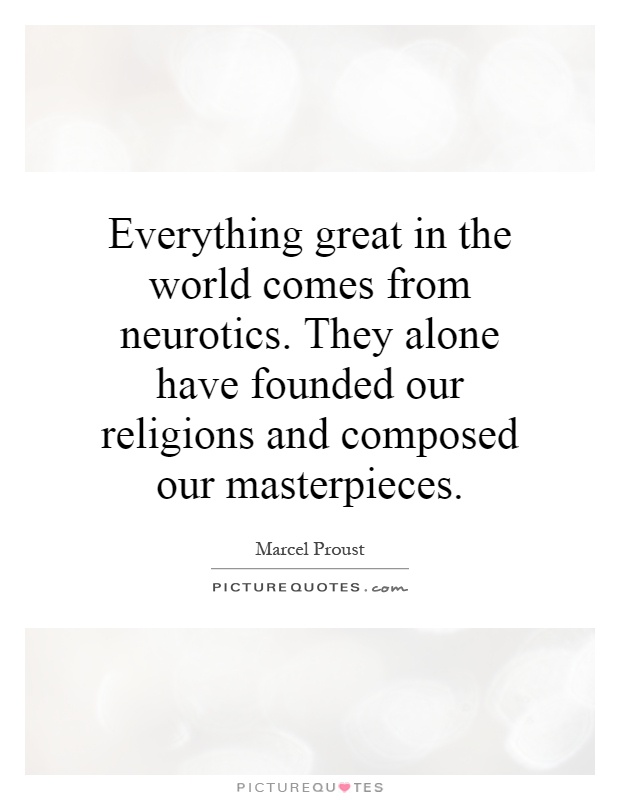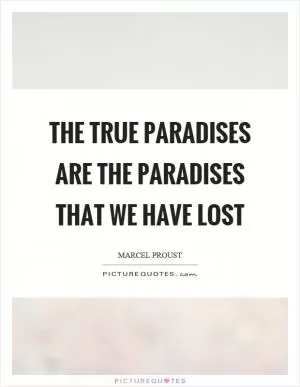Everything great in the world comes from neurotics. They alone have founded our religions and composed our masterpieces

Everything great in the world comes from neurotics. They alone have founded our religions and composed our masterpieces
Marcel Proust, the renowned French novelist, is often considered one of the greatest neurotics in literary history. His masterpiece, "In Search of Lost Time," is a testament to the depth and complexity of the human psyche, and his own struggles with neurotic tendencies are well-documented. Proust's work delves into the intricacies of memory, love, and the passage of time, all of which are themes that resonate deeply with those who grapple with neurotic tendencies.The quote, "Everything great in the world comes from neurotics. They alone have founded our religions and composed our masterpieces," can be seen as a reflection of Proust's own beliefs about the creative power of neurosis. Proust himself was known to be a deeply introspective and sensitive individual, prone to bouts of anxiety and melancholy. It is through his own struggles with neurotic tendencies that he was able to tap into the depths of his own psyche and produce some of the most profound and enduring works of literature in history.
Proust's exploration of memory and the ways in which it shapes our perceptions of the world is a central theme in his work. His characters are often haunted by the past, unable to escape the memories that continue to shape their present experiences. This preoccupation with memory and the passage of time can be seen as a reflection of Proust's own neurotic tendencies, as he grappled with his own fears and anxieties about the fleeting nature of life.












 Friendship Quotes
Friendship Quotes Love Quotes
Love Quotes Life Quotes
Life Quotes Funny Quotes
Funny Quotes Motivational Quotes
Motivational Quotes Inspirational Quotes
Inspirational Quotes